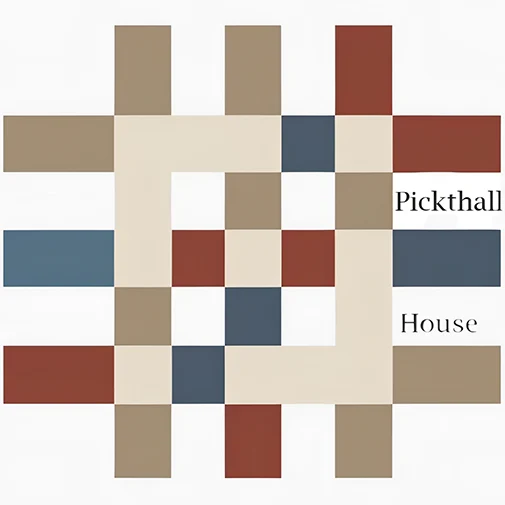The debate over Scotland’s new hate speech law is overblown, but real concerns about free speech in Britain persist. Pickthall believes we can simultaneously enhance free expression and protect vulnerable individuals from threats.
Scotland’s new Hate Crime and Public Order Act, which came into effect on 1 April 2024, has triggered the latest round in polarising culture wars. The law was roundly condemned in the usual quarters, with Rishi Sunak using the furore to score partisan points against the SNP government and the Labour Party, who both supported the bill in the Scottish Parliament, while JK Rowling made front pages with an extraordinary demand to Scottish police to arrest her for her social media posts referring to trans-identifying individuals by their biological sex.
When Police Scotland stated that the author’s tweets were “not criminal”, many will have been reassured, but the fact that this was ever in question is itself cause for concern. Amid a polarised debate that sheds more heat than light on the state of free expression in Britain, Pickthall calls for the recovery of a common sense distinction.
It is often forgotten by critics of regulating hate speech that the purpose of the relevant law, which in England is governed by the Public Order Act 1986, is not to censor any category of opinions as intrinsically hateful, but to protect individuals from abuse. In other words, it is not the content of speech that is regulated but the manner in which it is expressed. People are free to express belief in the most overt forms of biological racism, in Holocaust denial, or in any other doctrine that most of the public finds offensive. Courts have consistently found that a very high bar needs to be reached before counting speech as “threatening, abusive or insulting” for the purposes of the Public Order Act, and rightly so.
Scotland’s new Act makes mostly minor changes to the wording of the older legislation, and explicitly includes protections for free expression in Section 9. The main change is simply that additional protected characteristics, including sexual orientation and transgender identity, are specifically included in the law.
The real problem with free expression in Britain is not the existence of hate speech legislation but the cultural assumptions and the pressure sometimes exerted by interest groups that can have a chilling effect when nobody is convicted, or even prosecuted, for a crime. For example, in recent years, police forces have misapplied the Public Order Act in several high profile cases relating to allegedly homophobic comments by religious preachers. More common are cases where persons are “cancelled” and subject to professional and social sanctions for expressing controversial opinions that are nevertheless fully protected by law. Often these relate to controversial social and moral issues. After the 7 October Hamas attacks on Israel, critics of Israel’s response have been subject to increased social and institutional pressure to remain silent despite the fact that anti-Zionist opinion is explicitly protected by law.
In many of these cases, the targetted individuals are eventually vindicated, but the process is all-too-often sufficient punishment to deter others from expressing similar sentiments. Usually, nobody with the media clout of Rowling is able to force institutions to make explicit declarations about the boundaries of permitted speech. Free expression thrives on clarity and dies in darkness and obscurity.
Critics of ‘cancel culture’ are right to observe that this problem is especially severe at universities, but wrong to make it a partisan issue with which to score points against the ‘woke’ left. The current Conservative government’s Higher Education (Freedom of Speech) Act 2023 to protect expression in universities was laudable, but contradicted in spirit by several ministers’ attempts to shut down or stigmatise pro-Palestine advocacy both in universities and in wider civil society. Both the excesses of some trans-advocacy groups on the left and some pro-Israel groups on the right ironically make the same error: that being a good citizen of Britain is intrinsically linked to holding a certain set of political or moral beliefs. Pickthall stands for free expression for all who do not advocate violence.
We also deplore the polarisation of current debates around free speech. Free expression is the most basic civic value of this country and is central to Britain’s long and proud tradition of tolerance, pluralism, and diversity. All sides and all parties should value it equally. We call on all political parties to explicitly endorse the rights of all citizens to express their views, however controversial, without social or professional sanction; and we call on them to do so with consistency. We have a problem with culture, not law. Culture only changes when we change ourselves, and start doing the right thing even when it is difficult.
1E.g. (Foley 2023; Vektor 2024)
2E.g. (Vinter 2023; Lawal 2024)
Foley, Ryan. 2023. “American Street Preacher Arrested in England for Preaching during LGBT Pride Event.” The Christian Post. June 26, 2023. https://www.christianpost.com/news/street-preacher-arrested-in-england-for-preaching-during-pride.html.
Lawal, King. 2024. “King Lawal: The Challenge of Being a Councillor and a Christian.” Conservative Home. March 8, 2024. https://conservativehome.com/2024/03/08/king-lawal-the-challenge-of-being-a-councillor-and-a-christian/.
Renton, David. n.d. “British Universities Are Repressing Free Speech on Palestine.” Accessed April 2, 2024. https://jacobin.com/2024/01/british-universities-free-speech-palestine.
Vektor, Website by. 2024. “Angus Cameron.” January 16, 2024. https://www.christian.org.uk/case/angus-cameron/.Vinter, Robyn. 2023. “Tory Mayor Resigns after Apologising for Attending LGBTQ+ Event.” The Guardian, June 19, 2023. https://www.theguardian.com/world/2023/jun/19/tory-mayor-resigns-after-apologising-for-attending-lgbtq-event.


